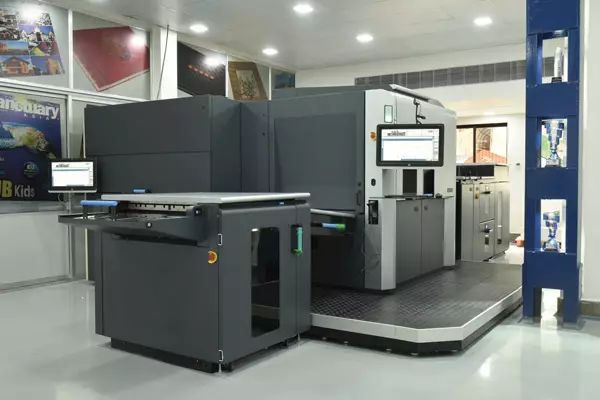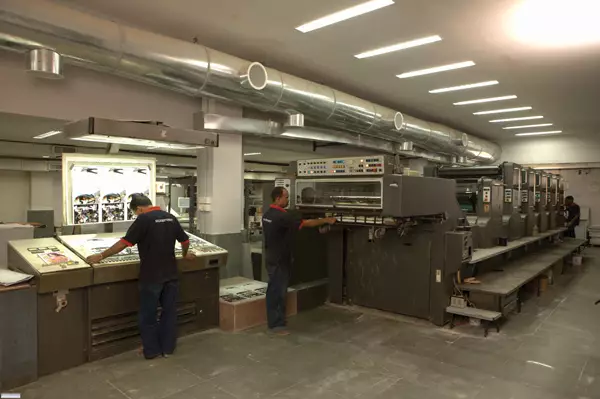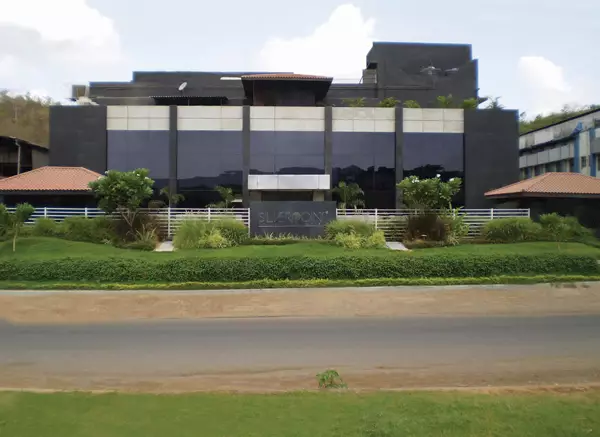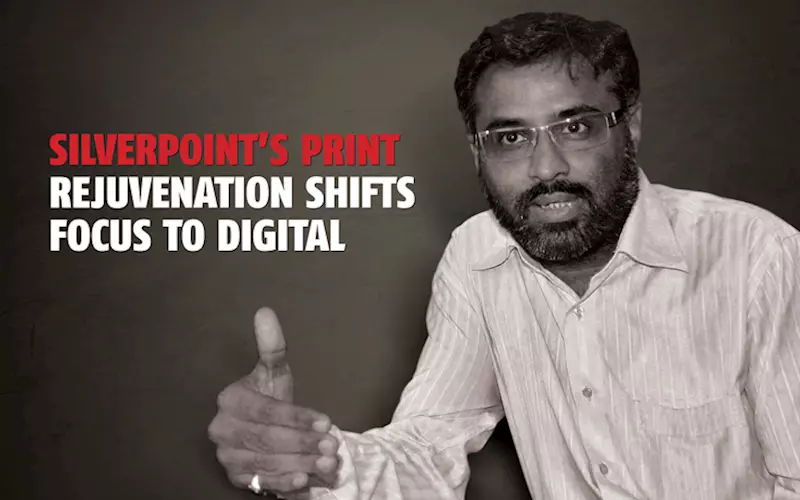Silverpoint’s print rejuvenation shifts focus to digital - The Noel D'Cunha Sunday Column
After two years of deliberation, traditional offset company Silverpoint launched www.printnation.in. Three years of existence, and the e-Commerce space is seeing a 100% growth year-on-year.
In this Sunday Column, Saifee Makasarwala, the company’s chief operating officer, traces Silverpoint’s own journey and the journey in the eCommerce space. Read on
27 Jun 2021 | By PrintWeek Team
The early days
“The main reason to launch Printnation in 2017 was to have our presence in online web to print business since most of the developed market trend is to provide an automated platform to regular print buyers, which saves them time and effort procuring print. We do have a lot of corporate accounts and also PSP’s that do not have an advanced printing facility in house and wants to outsource their jobs with us,” explains Makasarwala.
The portal, which initially started as a B2B version, has pivoted for the past 14-months to a full-scale consumer website.
“It took us almost two years to convince ourselves to get into this space, but once the decision was taken (in the year 2017), we launched our web site www.printnation.in. The initial few months were difficult- we were learning the ropes, now after almost 18 months of efforts, we are growing year on year with more than 100% growth,” says Makasarwala.
“We spent a lot of time understanding this online space just to ensure we do it the right way and try as much as possible to make the plan on paper feasible before going live. Since there are a lot of horror stories of burning private equity cash on such a business model and for us entire investment is from our kitty hence due diligence was imperative,” he adds.
Talking about the transition to an online business model and the perceptions associated with it, Makasarwala says, “With the offline print business, we built a rapport with every customer, and they ensured they get the quality, the service and the price they want. With online, the quality and service have to be a given; otherwise, you’re wasting your time – but the biggest issue is trust, and the only way you can demonstrate that is through independent reviews.”
“Online business is all about user experience; when the prospect is on your site, he doesn’t know you, nor is he aware of what setup you have. The only reason he gets convinced is his experience on the site and your online customer support,” he adds.
In its effort to provide the best possible user experience, the website has achieved a phenomenal rating of 4.9 out of 5 with 4000 reviews.
“Not only the ratings but the overall user experience is imperative- from surfing the site, shortlisting the product they want, designing online or uploading the file, payment gateway. Add to that the back office team supporting the client to sort out artwork issues like low-resolution image, bleed fonts, and finally timely delivery and sending all notifications to the client giving updates for the job,” explains Makasarwala.
According to Makasarwala, the biggest learning in the last few years is different ways to reach customers.
“The chronic issues like problems in artwork file I think will remain forever since in the online space people who are buying are mostly who don’t know much about printing, so these challenges are part of your business process. The most significant learning I would say is identifying the different ways to reach its potential customer through online marketing. It is also about continuously learning and implementing those changes to not miss out on marketing your product and services. This is the key in the online space,” he explains.


The Silverpoint plant is equipped with both digital (HP Indigo) and sheetfed (Heidelberg) presses
The digital expansion
One of many changes that Silverpoint made during this transition was to invest in digital presses. The investment included the HP 12000 installation.
“We started experimenting with digital printing for more than a decade now; initially, we started by outsourcing the requirements to various suppliers who had different printing engines, and very soon we zero down on suppliers with Hp Indigo machines. This is because we were satisfied with the print result and consistency in quality. Soon our volumes grew, and we saw the client’s requirements also for short-run’s printing increased, and that’s when we did our numbers and decided to test the waters and installed our first Hp Indigo 3550,” says Makasarwala.
The Hp Indigo 3550, was an A3 entry-level machine. According to Makasarwala, the installation was the key to mastering the digital press benefits and understanding the technology limitations.
“Our team started experimenting with offerings of personalised printing solutions. We also did a lot of work which was hybrid combining offset and digital printing. During this period, HP launched the B2-size press, and we started our homework as to how the B2 size will impact the overall business. It became crystal clear that size matters a lot; we realised that we could shift a considerable portion of the short-run business to B2 size,” he explains.
Silverpoint’s team conducted several trials along with HP for a long time to be assured of the technology’s stability before taking the plunge.
“We saw a game-changing opportunity and knew this would give us a tremendous boost in staying ahead of the competition by investing in Hp Indigo 12000. I must say we had immense support from team HP throughout. They helped us and our entire team transition from a traditional mindset of offset printer to start thinking of selling personalised printing solutions from a printer mindset to a solution provider,” says Makasarwala.
“It’s the fourth year running, and we see steady growth in the short-run and personalised and variable data printing segment. For a company like ours, which only focused on the commercial printing segment, digital printing was a logical extension of our business,” he adds.
Speaking about the company’s learning and unlearning process from a hardcore litho plant to a digital-focused setup, Makasarwala believes the short-run job handling methods was critical.
“It definitely is a different ball game! You cannot run a digital setup with a litho mindset and hence a lot of unlearning and learning the new trade specially when you initially start doing small run jobs which are just one quantity. The billing happens, and you feel depressed with the kind of investment you have made. When you start multiplying those one quantity requirement and set a system to sell and deliver them efficiently in a large number, you see the real potential of having this powerful engine. The mindset from just a typical printer to a print service provider with solutions makes the difference,” he says.
“We also chose Indigo because it prints like litho and the technology supports reproducing very close to offset printing. It also opens up a broad spectrum of possibilities that are not possible with toner or inkjet-based technology,” explains Makasarwala as one of the reasons for them partnering with HP.
Makasarwala believes the digital space has much more to offer than the PoD segment and feels the real business is in providing an entire gamut of personalised printing, variable data printing etc.
“The ability to achieve quick turnaround time for challenging jobs which your competition may shy away from is another example of what digital can do. There are many other possibilities wherein you change your business model from being just a service provider to product selling and marketing them,” explains Makasarwala as the advantages of going digital.

Silverpoint’s three-storeyed 50,000 sq/ft plant in Mahape, Navi Mumbai
Consolidating operations
As part of their operation effort, Silverpoint consolidated their three sites under the same roof in Navi Mumbai.
“It became necessary as running multiple sites was throwing up several challenges. The most significant advantage of bringing everything under one roof was control over the entire process, less wastage and better quality management,” explains Makasarwala.
“Recently we have added several print finishing machines to handle short quantity jobs mainly. The SOP’s remains more or less the same as we have formed a dedicated team that takes care of online business. We also have 24x7 customer support services if someone needs any help while placing an online order,” he adds.
The company also takes extra effort to keep their homegrown team fully equipped.
“We schedule regular training from experts so that the team is always agile, and where ever we fall short of talent, we outsource and fill the gap,” says Makasarwala.
Deliver just-in-time
According to Makasarwala, the company aims to provide a bespoke, personalised product in the same timescale that an off-the-shelf product can be picked and shipped.
“As I mentioned earlier, we have automated a lot of processes so that we can quickly turn around jobs. Similarly, we do many personalised single quantity books; in such jobs every page is personalised, and it is hard case bound. During peak promotion seasons the order quantity increases eight to ten folds, but we ensure all dispatches go out by the end of the day,” says Makasarwala
Explaining the process flow of the delivery mechanism he adds, “As standard practice, all online jobs which are received by 11 am are dispatched the same day. Many times we receive a request from our clients for a very urgent same-day delivery which 95% of the time is done unless it involves a process which is practically not possible to achieve in a short time. Otherwise, our team ensures that all requests are 100% fulfilled. Often, the jobs are delivered to the client while they are on the way to the airport or a launch event,”
The pandemic times
“Unlike the good old days when we had sizeable calendars and diary business nowadays, there is nothing like a peak season. The commercial printing business has become flat. We now need to be creative and solutions-oriented to increase the share in the pie. Last financial year because of the pandemic, it was a challenging year for all, and the same was true for commercial printing business too,” explains Makasarwala.
“It is even more challenging for businesses like ours, which is demand-driven. Also, keep the entire team on their toes to ensure that all critical decisions are taken on the fly and ensure the high-quality product is delivered in the shortest possible time. Many processes are now automated, which helps ensure near-zero human errors and quick flow of the job through the system. The goal is to keep the system free so that the next job can come and flow out without bottlenecks,” he adds.
Future is B2C
“We are at the infant stage of our eCommerce venture, and we see a lot of growth opportunity. Yes, we are growing very fast in the online space almost 80% of the business is from repeat clients, and we are pleased about that. I must tell you though the cost of customer acquisition is very high in the online space,” explains Makasarwala.
“I must also add that the opportunity is massive in the B2C segment though we definitely feel you need deep pockets to sustain and grow further,” he emphasises.
Silverpoint has also been thwarting several M&A (mergers and acquisitions), keeping in mind the market space and condition.
Saifee Makasarwala: At a glance

How old were you when you started in print?
I was 20 years old, straight from GIPT joined Silverpoint as a trainee in 1993.
Have you always been a part of the Silverpoint family?
This is my first job after completing my diploma.
What is the key to your partnership with Shabbir Muchhala?
The key is his ability as a leader to set a vision and road map and then delegate and motivate to achieve those goals that I think is very rare in our industry, which is run predominantly by family members and professional like me cannot grow beyond a certain point.
Is there room for craftsmen with bespoke offerings for niche markets? The good old fashioned letterpress creator?
Yes, there is most premium invites in the US are printed on letterpress.











 See All
See All